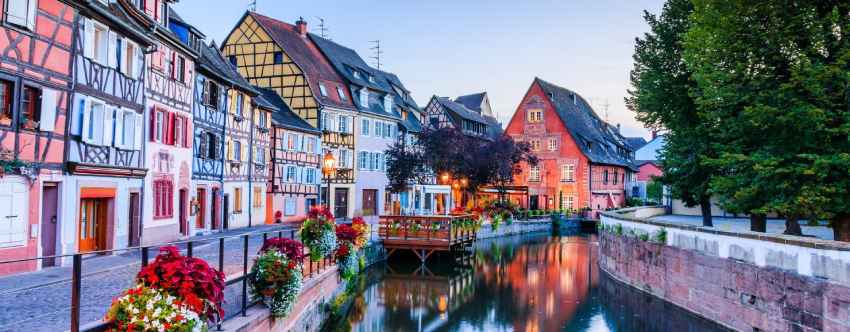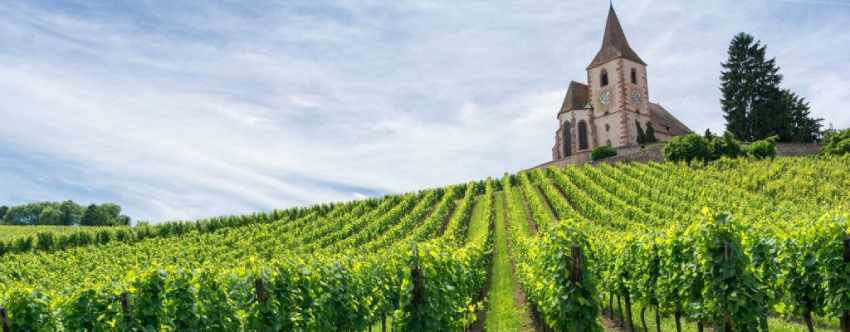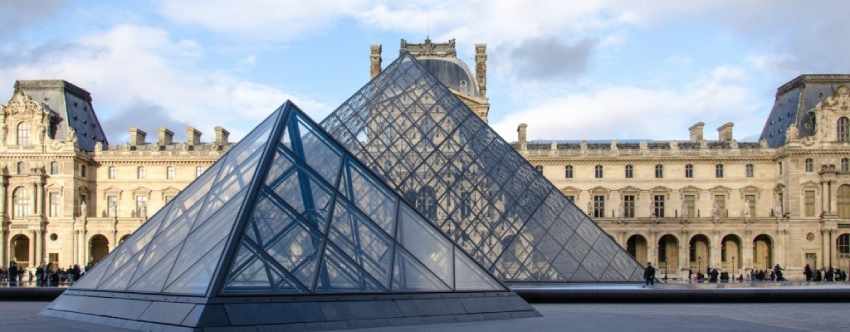Living and Working in France
Information & guidance about seasonal jobs in France
Have you ever come across the saying, “Living like a God in France”? Well, once you embark on the journey of living and working in this captivating country, you’ll truly understand its essence. France beckons with its vast expanses, majestic mountains, and picturesque beaches. Not to mention the delightful climate, delectable cheeses, exquisite wines, and the artistry of French cuisine. Whether you yearn to bask under the Mediterranean sun or wander the charming streets of Paris, the culture of savoring life’s pleasures is ingrained throughout the nation. Intrigued? Then continue reading to discover what awaits you in the enchanting world of living and working in France!
Seasonal jobs in France
Featured
- Hospitality Services, Tourism
- Andorra, Croatia, France, Greece, Italy, Turkey, United Kingdom
Featured
- Host, Hotel jobs, Leisure, Tourism
- Croatia, France, Greece, Italy, Spain, Turkey
Featured
- Host, Leisure, Tourism
- Croatia, France, Greece, Italy, Spain, Turkey
Featured
- Host, Leisure, Tourism
- Croatia, France, Greece, Italy, Spain, Turkey
France beckons with a plethora of job opportunities in its vibrant winter and summer tourist industries. The country boasts some of the largest and most renowned ski resorts, including Alpe d’Huez, Les Portes du Soleil, Courchevel, Les Arcs, Meribel, Les Menuires, Val Thorens, Chamonix, La Plagne, Val d’Isere, Tignes, and Serre-Chevalier. From December to April, numerous job openings arise in hotels, bars, and restaurants, making the French Alps a bustling hub for work. British and European ski companies also operate in the region, offering roles as Representatives, Chalet Hosts, and Childcare Staff.
During the summer, various British and European camping companies provide employment opportunities in campsites across France, creating a thriving summer job market.
For those passionate about teaching, positions to teach English are available, especially in summer camps, where enthusiastic individuals can impart knowledge to children.
Throughout the year, fruit pickers are in demand across the country, plucking apples, maize, grapes, peaches, strawberries, and cherries, with peak seasons varying from region to region. The South East and West, as well as the Loire and Rhone Valleys, host the majority of these opportunities.
For those seeking au pair positions, some childcare experience is usually required, although fluency in French may not always be necessary. Au pairs live with host families, caring for children and handling basic domestic duties, often receiving food and accommodation in return.
Additionally, France offers voluntary job opportunities in restoration projects and work camps, appealing to those with a passion for giving back.
Before visiting France for holidays, business trips, study, work, volunteer work, or emigration, ensure you stay informed and up-to-date with visa requirements. The official website of the French Ministry Of Foreign Affairs provides accurate information for your reference.
For the latest updates on visa requirements, you can also consult the Embassy or Consulate of France before commencing your travel plans. Being well-informed will pave the way for a smooth and enjoyable experience in this captivating country.

Working in France
Working conditions in France revolve around promoting a healthy work-life balance and cherishing the country’s rich culinary heritage. A standard working week consists of 35 hours, allowing employees to allocate ample time for personal pursuits outside of work. Additionally, employees benefit from 11 official national holidays, granting them several opportunities to unwind and enjoy leisure activities throughout the year. The French work culture emphasizes the importance of vacation, offering a generous allocation of 30 paid vacation days per year, encouraging individuals to indulge in extended summer holidays and occasionally take extra days off following public holidays. Food is an integral part of French culture, and the French take great pleasure in savoring their meals. Embracing the tradition of a 3-course meal, many employees spend their lunch breaks relishing a starter, main course, and dessert. Interestingly, work-related discussions often take place during these sumptuous lunches, with the French recognizing the value of fostering professional relationships in a more relaxed and enjoyable setting. A 3-hour lunchtime gathering can prove to be as productive as a traditional 2-hour meeting, reflecting the French appreciation for the social aspects of dining. Regarding the age at which one can work in France, minors can commence employment at the age of 16, provided they receive parental permission. However, specific limitations exist for minors between the ages of 14 and 16, who are only allowed to engage in “light work.” French law prohibits minors from performing night work, ensuring their safety and well-being.Salaries in France: Minimum Wage and Average Gross Monthly Salary
In France, there exists a minimum wage, known as the SMIC (Salaire Minimum Interprofessionnel de Croissance), which serves as the legal benchmark ensuring that no employee is paid below this threshold. As of 2022, the established SMIC is €1,678.95 gross per month. This provides a fundamental level of protection for workers, guaranteeing a fair and decent income. Apart from the minimum wage, the average gross monthly salary in France for the year 2022 is approximately €2,340 net per month. This average encompasses various professions and industries, reflecting the diversity of salaries across the country.Working in France Tax: Progressive Tax System
As an employee in France, you will be subject to income tax and social security contributions. France operates on a progressive tax system, which means that the amount of tax you pay increases with your income level. The more you earn, the higher the percentage of your income is levied as tax. Tax rates in France can range from as low as 0% for lower income brackets to as high as 45% for higher income brackets. It is essential to be aware of the tax rates that apply to your specific income bracket to ensure proper financial planning and compliance with tax obligations. For the most up-to-date and accurate information on tax rates in France, you can refer to official sources or seek advice from tax professionals. In summary, salaries in France are regulated by a minimum wage to safeguard workers’ income. The average gross monthly salary reflects the overall income diversity in the country. As a worker in France, you should also consider the progressive tax system, which means that your tax liabilities will depend on your income level, with rates ranging from 0% to 45%. Understanding these aspects will allow you to make informed financial decisions and adhere to tax regulations while working in France.Contracts in France:
When you accept a job offer in France, you will typically start with a CDD (contrat durée déterminé), which translates to a fixed-term or annual contract. This type of contract has a predetermined duration and comes with an end date. It is commonly used for temporary or seasonal positions. The maximum duration for a CDD is 36 months (3 years). After this period, if your employer is satisfied with your performance and other conditions are met, you may be offered a CDI (contrat durée indéterminé), which is a permanent contract in France. The CDI does not have a fixed end date and provides more stability and long-term employment prospects.Holidays in France:
When working in France, it is important to be aware of the public holidays as they may affect your working schedule and entitlement to paid time off. The following is an overview of the official public holidays in France:- January 1: Jour de l’An (New Year’s Day)
- Easter Monday: Lundi de Pâques
- May 1: Fête de Travail (Labour Day)
- May 8: Fête de la Victoire (Victory in Europe Day)
- Ascension Day: Jour de l’Ascension
- Whit Monday: Lundi de Pentecôte
- July 14: Fête Nationale / Quatorze Juillet (Bastille Day)
- August 15: Assomption (Assumption of Mary)
- November 1: Toussaint (All Saints’ Day)
- November 11: Armistice Day: Jour de l’Armistice
- December 25: Noël (Christmas Day)
The working culture in France
In France, rules and hierarchy are very important. For example, you always address your manager as “vous” (formal “you”) and everything is usually done exactly according to the rules. It is not appreciated if you are too independent or show initiative. Also, keep in mind that the French do not communicate as directly as the Dutch. In France, people often have a chat before they actually get down to business. For example, the French like to have meetings during a long lunch or an extensive dinner. The French first get to know each other extensively before they really talk about business. Also, punctuality is not that important in France. It is not surprising if someone arrives half an hour late for an appointment. As a result, meetings can often run over. That is not a problem, but you will be expected to continue working longer. The French will not necessarily say this to you, but it is expected of you.Temporary work in France
Working in France during the summer
France is one of the most popular holiday destinations. Many people choose to spend a few weeks with their family at a campsite on the Cote D’azur in the South of France. This popularity also creates numerous summer job opportunities in the country. Various roles are available, from animator/entertainer, waitress, and cook to camping staff and hotel receptionist. Most summer job postings become available online in December and January, with the majority of these positions starting in May or June. Even if the summer season has already begun, some employers continue to post new vacancies, so it’s essential to keep an eye on relevant vacancy pages and apply for your preferred summer job.Working at a campsite in France
During the summer in France, many young people opt to work at campsites. The specific roles available may vary from one campsite to another. For instance, you could start as a camping employee whose main responsibility is to maintain the campsite and its grounds. This role may also involve working at the reception and being the point of contact for guests. Therefore, proficiency in several languages and excellent customer service skills are essential. Another option is to join the animation team of the campsite. As an animator, your task would be to organize enjoyable activities for both young and old guests. This could include game nights, nature walks, or party events. Campsites also often seek cleaners and catering staff to ensure the smooth functioning of their facilities during the busy summer season.Working in France winter season
If you are passionate about winter and interested in holiday work, France offers exciting opportunities during the winter season. The French Alps, renowned for their stunning winter sports destinations, provide a perfect setting for those who love skiing or snowboarding. If you possess excellent snowboarding or skiing skills, you can opt for a rewarding job as a ski instructor or snowboard instructor. It’s important to note that most winter job vacancies are typically posted online during the summer months, making it an ideal time to start your job search. Winter jobs generally commence around November, coinciding with the start of the winter sports season in the French Alps. If you have a passion for winter sports and enjoy teaching others, working as a ski or snowboard instructor in the picturesque French Alps could be an unforgettable experience.Networking in France
When living and working in France, building an international network can be beneficial for job opportunities and personal growth. Attending networking events through platforms like Eventbrite allows you to connect with professionals in your field and gain valuable insights from diverse perspectives. Take advantage of these gatherings to establish meaningful connections and learn from others’ experiences. A strong network can enhance your career prospects and provide support along your journey. Would you like to get in touch with other expats in France? Then join the Facebook groups Expats living in France, Expat life in France and Expats in France.Living in France
Advantages of living and working in France
Living and working in France offers several advantages, making it an increasingly popular choice for many Dutch individuals. The pleasant climate and rich French culture are among the key reasons for this trend, with more people even opting to buy second homes in the country. Additionally, France’s proximity to the Netherlands and Belgium allows for convenient visits to friends and family back home. French cuisine and wine are renowned worldwide, and the French take great pride in their culinary traditions. Life in France often revolves around food, making it a delightful experience for those who appreciate gastronomy. The cost of living in France is generally similar to that in the Netherlands, but many products are more affordable in France. The French value politeness and courtesy, creating a welcoming environment for those seeking to work abroad. In summary, France presents an excellent choice for those looking to embark on an international work adventure.Accommodation in France
The average rent of a 1-room apartment in the center of Paris is €1,284. A 1-room apartment outside the center of Paris costs about €951 per month. In a city like Nancy you pay an average of €516 for a 1-room apartment in the center, while the same apartment outside the center of Nancy costs only €383 per month. Sites we recommend for finding suitable accommodation in France are: https://www.wimdu.nl/ https://www.waytostay.com/ https://www.residences-immobilier.com/ https://www.nederlanders.fr https://www.huurvillaappartement.nl/
Transport in France
Public transport in France is well-organized, offering various options for traveling within the country and beyond. Air travel is easily accessible through airports like Charles de Gaulle and Orly in Paris, which have excellent connections to the rest of the world, including short flights to Amsterdam with Air France or KLM.
France’s railway network provides efficient connections both domestically and internationally. The pride of the country, TGV trains, reach speeds of up to 300 km per hour, allowing travelers to reach destinations like Bordeaux from Paris in just three hours. Tickets can be purchased at train stations, but passengers must remember to have their tickets stamped at the beginning of the platform. Gare du Nord is Europe’s largest station and serves transportation to and from the north of Europe through services like Thalys and the Eurostar, while Gare de Lyon handles transportation to the south of France.
For road travel, drivers should be aware of the toll roads (péage) in France. When approaching a toll plaza indicated by blue signs, drivers must select the appropriate toll gate based on their car’s class and desired payment method. Cash and credit cards such as Mastercard, Visa, American Express, Eurotraffic, Shell, Esso, CB (French debit card), and GR Total are accepted at the toll gates. Alternatively, travelers can opt for a toll badge or pass, linked to their bank account and vehicle registration number, for convenient payments throughout their journey.


Eating in France
France boasts a rich and diverse culinary culture, with each region offering its own unique specialties. From the northwest’s beurre (butter) and crème fraiche (cream) to the southeast’s Mediterranean delights like huile d’olive (olive oil) and aromatic herbs, and the southwest’s renowned foie gras (goose liver), every corner of the country contributes to the vibrant tapestry of French cuisine. In the northeast, Germany’s influence is evident with their bière (beer), saucisse (sausage), and choucroute (sauerkraut) making their mark. Food holds immense significance in French culture, and the French take pleasure in savoring delicious meals. Starting the day with freshly baked croissants from a local bakery, enjoying a light snack at a charming Parisian bistro, relishing a thin and delectable crepe from street vendors, and celebrating special moments with a resounding pop of champagne—all contribute to the gastronomic experiences that make France famous. The list of delights includes delightful pastries such as Crème brûlée, Macarons, and Pain au chocolat. As for prices, a mid-range bottle of wine typically costs around €7, a 0.5-liter bottle of beer approximately €2, and a standard restaurant meal is priced at around €15. For those seeking a cappuccino, the average cost is €2, while a liter of milk can be purchased for €1. A freshly baked croissant or other tempting treats from the bakery are available at prices ranging from €0.55 to €2, depending on the location within the country.Going out in France
France boasts a vibrant and lively nightlife that caters to every partygoer’s desires. Trendy clubs offer exciting experiences, where one can revel until the early morning, surrounded by music and sometimes under the enchanting starry sky. The pulsating nightlife is not limited to Paris; major cities like Bordeaux, Marseille, Montpellier, Nantes, and Biarritz also offer fantastic options. Along the riverbanks, you’ll find hip bars, while rooftop bars beckon with delightful cocktails and a pleasant ambiance. During the summer, numerous festivals and events beckon visitors to the coast, mountains, and various regions. Musical genres ranging from pop, electro, house, jazz, to even classical music grace the stages of ancient amphitheaters, sandy beaches, and fishing ships. As the evening sets in, the French gather along the Seine and at places like Darwin in Bordeaux, immersing themselves in the delightful atmosphere. Countless other venues across France promise to keep the night alive. Throughout the afternoon, the anticipation builds with options to visit exhibitions, enjoy delectable dinners in restaurants, or unwind with a glass of wine on a terrace. In the French nightlife, boredom is not an option.The landscape and nature of France
Beyond the bustling urban life, France’s landscape showcases an incredible diversity of natural beauty. From serene flat meadows to lush forests and majestic mountain ranges, the country offers a myriad of outdoor experiences. Visitors can marvel at the white chalk cliffs of Normandy, the unique coasts of Brittany, the captivating lavender fields of Provence, and the enchanting sandy beaches along the Côte d’Azur. France is a true haven for nature lovers, offering a rich tapestry of landscapes to explore.
The climate in France
The climate in France varies across the country. Most regions have a temperate maritime climate with mild winters, moderate summers, and consistent rainfall throughout the year. In the French Alps, a high mountain climate is present, while the southeast coast experiences a Mediterranean climate with warm summers and mild winters. With such diverse climates, you can enjoy all four seasons in France, from relaxing on the beach to skiing in the mountains.Must-See Attractions in France
Paris:
Known as the “city of love,” Paris is France’s top tourist destination, drawing millions of visitors each year to explore its iconic landmarks. Among the most famous are the Eiffel Tower, Louvre Museum, Musée d’Orsay, Sacre Coeur, Arc de Triomphe, and the Montmartre district. The River Seine gracefully flows through the city, offering stunning views from its numerous bridges. Additionally, Paris’s vibrant nightlife includes the renowned Moulin Rouge in its lively “red light district.”Louvre:
The Louvre stands as one of the world’s most renowned museums, attracting millions of art enthusiasts annually. Home to historic masterpieces, the museum proudly displays Leonardo da Vinci’s Mona Lisa, a true centerpiece of its collection.Provence-Alpes-Côte d’Azur:
Located along the Mediterranean Sea and bordering Italy to the east, Provence-Alpes-Côte d’Azur is a beloved holiday region in France. Marseille serves as its capital, with other notable cities such as Nice, Aix-en-Provence, Avignon, and Montpellier. The coastal area, also known as the French Riviera or Côte d’Azur, hosts luxurious holiday destinations like Cannes and Saint-Tropez. The region’s interior boasts fragrant lavender fields, with historical remnants like the Pont du Gard and the antique theater of Orange, showcasing its Roman heritage.Wine Regions:
For wine enthusiasts, France offers a plethora of wine regions to explore. Beaujolais, Bordeaux, Bourgogne, Champagne, Côtes du Rhône, Alsace, and Provence are some of the most famous ones, totaling 14 distinct wine regions. Each area has its unique flavor and character, and wineries across France invite visitors to taste and purchase local wines.Disneyland Paris
Who doesn’t like Disneyland? Mickey, Goofy, and Donald Duck. A few kilometers outside the city of Paris is the most visited amusement park in Europe: Disneyland Paris. The park was opened in 1992 under the name Euro Disney. Since 2002, after the opening of the Walt Disney Studios, the amusement park has consisted of two parts. Disneyland Paris consists of five different themed areas: Main Street USA, Frontierland, Adventureland, Fantasyland, and Discoveryland. The most famous roller coaster of the park is of course the Space Mountain.
Healthcare in France
France’s healthcare system is globally renowned and has been rated the best in the world by the World Health Organization (WHO). Not only does it offer high-quality services, but it also ensures accessibility for all. Health insurance is mandatory in France, and as a resident, you automatically receive medical care entitlement. You have the option to obtain health insurance through your employer or the government. Those who cannot afford health insurance are eligible for free government-provided coverage, funded by taxes. If you can afford it, approximately 5.5% of your monthly salary contributes to the health insurance fund in France. While basic insurance covers many treatments, be aware that you may now be required to pay a personal contribution for certain services. The costs are typically minimal, but having private insurance can exempt you from these additional charges. In France, you have the freedom to select your own General Practitioner (médecin traitant) and choose the hospital where you prefer to receive treatment.To provide the best experiences, we use technologies like cookies to store and/or access device information. Consenting to these technologies will allow us to process data such as browsing behavior or unique IDs on this site. Not consenting or withdrawing consent, may adversely affect certain features and functions.
Functional Always active
The technical storage or access is strictly necessary for the legitimate purpose of enabling the use of a specific service explicitly requested by the subscriber or user, or for the sole purpose of carrying out the transmission of a communication over an electronic communications network.
Preferences
The technical storage or access is necessary for the legitimate purpose of storing preferences that are not requested by the subscriber or user.
Statistics
The technical storage or access that is used exclusively for statistical purposes.
The technical storage or access that is used exclusively for anonymous statistical purposes. Without a subpoena, voluntary compliance on the part of your Internet Service Provider, or additional records from a third party, information stored or retrieved for this purpose alone cannot usually be used to identify you.
Marketing
The technical storage or access is required to create user profiles to send advertising, or to track the user on a website or across several websites for similar marketing purposes.





